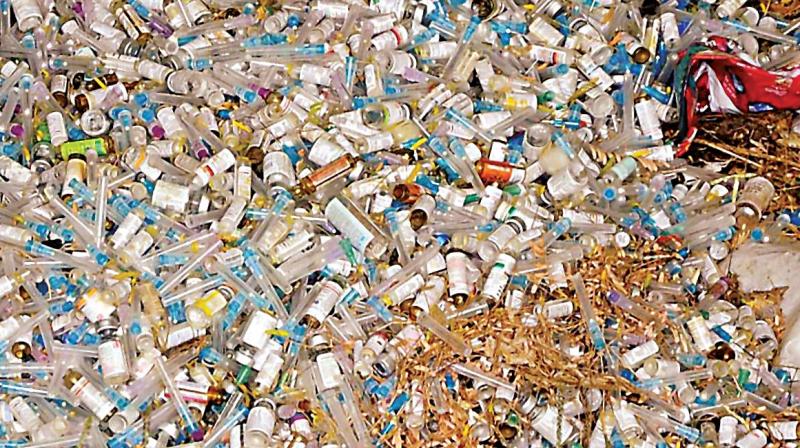Thiruvananthapuram: Decentralising hospital waste treatment is a must

Thiruvananthapuram: Only 50.41 percent of the waste that reaches IMAGE plants is being incinerated, according to statistics available with the Indian Medical Association. This could mean that the state government can consider decentralising the treatment of biomedical waste. According to the statistics available with the IMA, 19,814 kg of waste is incinerated and 12,021 kg is autoclaved on an average every day. The average number of bottles and sharps (needles, scalpels, blades and other sharp objects) which the plant treats daily is 6750 kg and 466 kg respectively.
It might not be practical to set up too many incinerators in a densely populated state like Kerala, but hospitals might be able to pre-treat bottles and sharps before they are sent out for recycling, as well as autoclave recyclable contaminated waste like tubing, bottles, IV tubes and sets, catheters and urine bags. When asked about this, IMAGE secretary K. P. Sharafudeen said, "hospitals might be able to autoclave waste. However, at the plant, there are facilities, like say shredding machines, to mutilate the disinfected waste like needles and ensure that these are not reused. Hospitals won't be able to set up such facilities," he said.
Hospitals should take the responsibility of waste made of plastic materials as there is a danger of it being incinerated at the common facility, according to Mr Sridhar Radhakrishnan, director, Thanal. A decade ago, during a study on biomedical waste treatment, he had noticed that unsegregated waste was incinerated at the Palakkad plant. "Though the State Pollution Control Board was informed, little was done to force them to rectify their operational errors. It is likely that the same happens even now, as it is more economical to burn everything together," he said. It was after hospitals were found to incinerate everything, including plastic, that the Supreme Court ordered a common biomedical waste treatment facility, according to Mr Fareeduddin Syed, a hospital quality management expert who is an external assessor for the Union health ministry.

